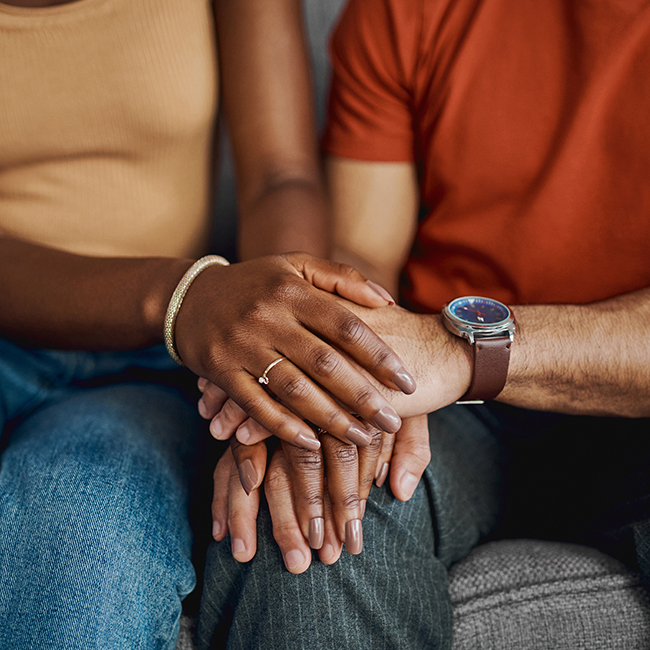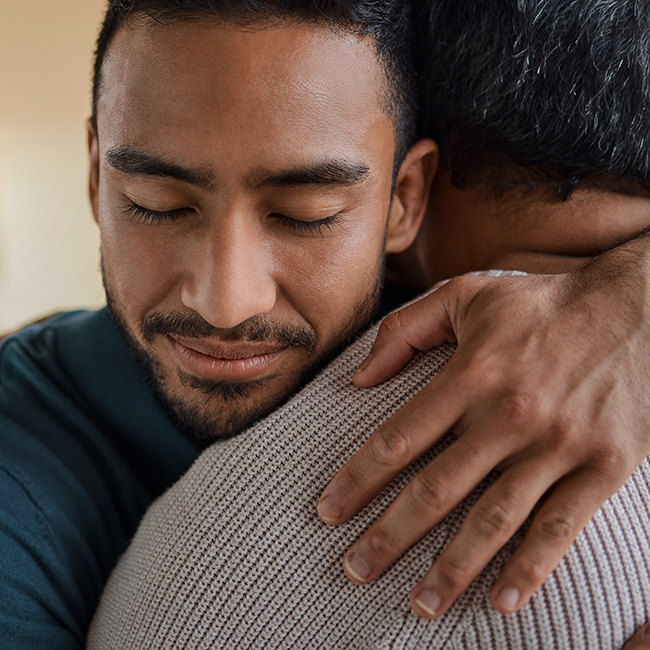
Prevention
The Oregon Health Authority, Health Systems Division partnered with the Center for Health and Safety Culture at Montana State University to assess the current culture in Oregon related to problem gambling. People across the state have a unique opportunity to help prevent problem gambling in their communities by using the resources provided here.
Helping others reflect on their own behaviors and knowledge about gambling and its risks, establishing guidelines for responsible gambling, and provide the resources necessary if someone is concerned about their own or someone else’s gambling behavior can help prevent devastating consequences in your communities. Renewal of one’s life and relationships is also possible, and there are many FREE, supportive treatment resources available in Oregon. For more information, contact Problem Gambling Statewide Prevention & Outreach Specialist Roxann Jones.
The Brain Connection
Gambling can have a similar impact on the brain as alcohol and other drugs, affecting the reward network in the brain. Check out this video to learn more about the impact of gambling on the brain. Learn more at BrainConnections.ca.

Responsible Gambling Guidelines
If you choose to gamble, do so for entertainment purposes.
If your gambling is no longer an enjoyable activity, then ask yourself why you are still “playing”?
Treat the money you lose as the cost of your entertainment
Treat any winnings as a bonus.
Set a dollar limit and stick to it
Decide before you go not only what you can “afford” to lose, but how much you want to spend. Do not change your mind after losing.
Set a time limit and stick to it
Decide how much of your time you want to allow for gambling. Leave when you reach the time limit whether you are winning or losing.
Expect to lose
The odds are that you will lose. Accept loss as part of the game.
Make it a private rule not to gamble on credit
Do not borrow money to gamble.
Create balance in your life
Gambling should not interfere with or substitute for friend, family, work or other worthwhile activities.
Avoid “chasing” lost money
The more you try to recoup your losses the larger your losses will be.
Don’t gamble as a way to cope with emotional or physical pain
Gambling for reasons other than entertainment can lead to problems. Gambling should not be used as a coping mechanism.
Drinking alcohol while gambling carries additional risk
Alcohol and gambling are not a good combination. If your night out includes drinking it’s best not to gamble or visa versa.
Become educated about the warning signs of problem gambling
The more you know, the better choices you can make.
Signs of problem gambling:
Are you or is someone you know experiencing these symptoms?
- Spending more and more time gambling.
- Increasing gambling time and places.
- Increasing bet sizes.
- Creating special occasions for gambling (canceling other plans).
- Increasing intensity of interest in gambling (constant high tension/excitement).
- Gambling to escape problems or when there is a crisis.
- “Chasing” losses with more gambling.
- Boasting about winning and evasive about losing.
- Exaggerated display of money and possessions.
- Decreasing desire to engage in other activities and interests.
- Frequent absences from school, work and home.
- Withdrawal from family and friends.
- Diversion of funds earmarked for other purposes.


Tips for having conversations with
adults about gambling behaviors.
- Show concern – Let them know you care about them and are concerned.
- Keep talking – Let them know exactly how their gambling behavior concerns you.
- Discuss the impact – Let them know how their behavior is impacting you and others. Be specific.
- Set clear expectations – “I want you to talk to someone about your gambling” and what they can expect from you – “I won’t cover for you anymore”.
- Listen – Approach the conversation with a non-judgmental attitude.
- Be proactive – Let them know you are willing to help.
- Provide information – Let the professionals provide the advice.
- Provide encouragement – Give them the information to contact OPGR.org or call the helpline at 1-877-MYLIMIT.
Tips for having conversations with
youths about gambling behaviors.
- Start Early – Don’t wait until adolescents to talk about gambling or other risky behaviors.
- Listen – Create an open environment for conversation about their lives. Start by asking them, “so what are kids gambling on these days?”
- Educate yourself and your kids about gambling – Share with kids that gambling isn’t risk free. It’s not a “healthy alternative” to alcohol or drug use.
- Look for opportunities to discuss the risks of gambling – When there is a news report of a jackpot win, talk about the odds and reality of winning. It’s great math practice!
- Monitor your child’s activities – Know where your kids are. Know their friends and what they are doing. Don’t forget about their online and video game activity.
- Keep talking – Like alcohol and drugs, it isn’t one conversation that does the trick. Bring it up in casual conversation and keep talking.
- Live by example – Remember that kids are watching what adults are doing.
- For additional information on talking to Youth about gambling, check out this great resource: https://talk2kids.org/


Topics
If you choose to gamble, do so for entertainment purposes.
If your gambling is no longer an enjoyable activity, then ask yourself why you are still “playing”?
Treat the money you lose as the cost of your entertainment
Treat any winnings as a bonus.
Set a dollar limit and stick to it
Decide before you go not only what you can “afford” to lose, but how much you want to spend. Do not change your mind after losing.
Set a time limit and stick to it
Decide how much of your time you want to allow for gambling. Leave when you reach the time limit whether you are winning or losing.
Expect to lose
The odds are that you will lose. Accept loss as part of the game.
Make it a private rule not to gamble on credit
Do not borrow money to gamble.
Create balance in your life
Gambling should not interfere with or substitute for friend, family, work or other worthwhile activities.
Avoid “chasing” lost money
The more you try to recoup your losses the larger your losses will be.
Don’t gamble as a way to cope with emotional or physical pain
Gambling for reasons other than entertainment can lead to problems. Gambling should not be used as a coping mechanism.
Drinking alcohol while gambling carries additional risk
Alcohol and gambling are not a good combination. If your night out includes drinking it’s best not to gamble or visa versa.
Become educated about the warning signs of problem gambling
The more you know, the better choices you can make.
Are you or is someone you know experiencing these symptoms?
- Spending more and more time gambling.
- Increasing gambling time and places.
- Increasing bet sizes.
- Creating special occasions for gambling (canceling other plans).
- Increasing intensity of interest in gambling (constant high tension/excitement).
- Gambling to escape problems or when there is a crisis.
- “Chasing” losses with more gambling.
- Boasting about winning and evasive about losing.
- Exaggerated display of money and possessions.
- Decreasing desire to engage in other activities and interests.
- Frequent absences from school, work and home.
- Withdrawal from family and friends.
- Diversion of funds earmarked for other purposes.
- Start Early – Don’t wait until adolescents to talk about gambling or other risky behaviors.
- Listen – Create an open environment for conversation about their lives. Start by asking them, “so what are kids gambling on these days?”
- Educate yourself and your kids about gambling – Share with kids that gambling isn’t risk free. It’s not a “healthy alternative” to alcohol or drug use.
- Look for opportunities to discuss the risks of gambling – When there is a news report of a jackpot win, talk about the odds and reality of winning. It’s great math practice!
- Monitor your child’s activities – Know where your kids are. Know their friends and what they are doing. Don’t forget about their online and video game activity.
- Keep talking – Like alcohol and drugs, it isn’t one conversation that does the trick. Bring it up in casual conversation and keep talking.
- Live by example – Remember that kids are watching what adults are doing.
- For additional information on talking to Youth about gambling, check out this great resource: https://talk2kids.org/
- Show concern – Let them know you care about them and are concerned.
- Keep talking – Let them know exactly how their gambling behavior concerns you.
- Discuss the impact – Let them know how their behavior is impacting you and others. Be specific.
- Set clear expectations – “I want you to talk to someone about your gambling” and what they can expect from you – “I won’t cover for you anymore”.
- Listen – Approach the conversation with a non-judgmental attitude.
- Be proactive – Let them know you are willing to help.
- Provide information – Let the professionals provide the advice.
- Provide encouragement – Give them the information to contact OPGR.org or call the helpline at 1-877-MYLIMIT.
To learn more about prevention efforts in your community or to connect with program staff, please contact PGS.support@oha.oregon.gov.